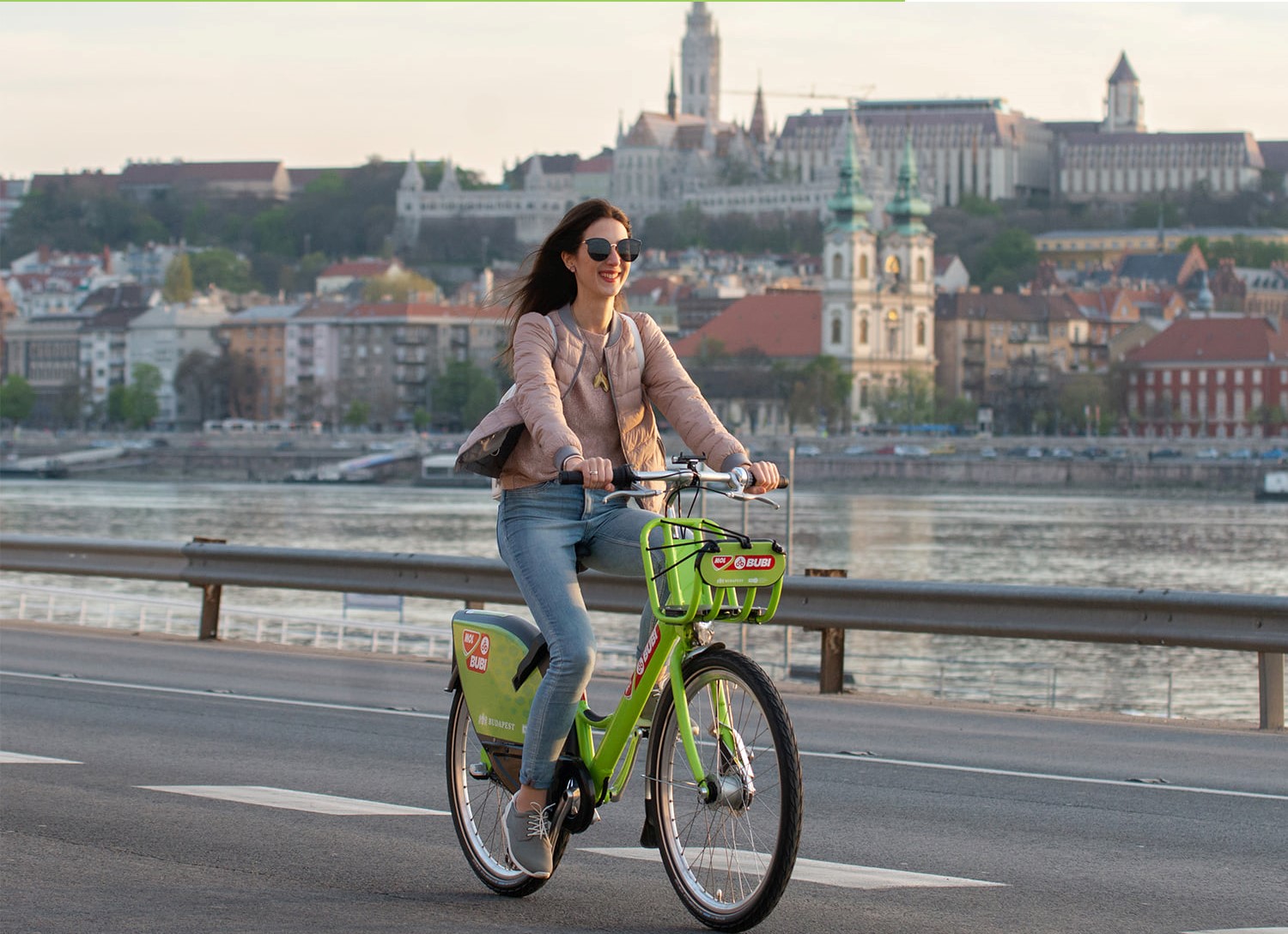Bike-sharing scheme in Budapest is as successful as the ones in New York or Barcelona!

Budapest’s upgraded Mol Bubi bike-sharing scheme, operated by the Budapest Public Transport Centre (BKK) with the support of Hungarian oil and gas company MOL, has attracted a record number of riders since its re-launch in the spring, BKK said on Wednesday.
The lighter, more comfortable Mol Bubi bikes have been used almost 850,000 times since their rollout in May, well over the full-year record of 652,000 rides reached in 2015. The number of daily rides
climbed over 10,000 on some days in September,
which means each bike was used about eight times daily. That daily average usage rate puts Budapest on par with cities such as New York or Barcelona, where bike-sharing schemes average six rides per day for every bicycle, BKK said.
In light of strong demand, BKK will expand the Mol Bubi fleet by about 30 percent this year, adding several hundred bikes.
In light of strong demand, BKK will expand the Mol Bubi fleet by about 30 percent this year, adding several hundred bikes.
The Planet Budapest 2021 sustainability expo will be held between November 29 and October 5, designed to raise awareness on climate change, which has been accelerated by human activity in the past decades, President János Áder told public news channel M1 on Wednesday. The event will feature conferences, exhibitions and youth programmes on climate change, water crisis, transport and energy efficiency, Áder said. Many companies will present their solutions to climate-related problems, and youth programmes will include interactive exhibitions of popular science, he said.
Hungary strives to become carbon neutral by 2050 as enshrined in Hungarian law, Ader said. The same aim should be set globally, but the
Hungary strives to become carbon neutral by 2050 as enshrined in Hungarian law, Ader said. The same aim should be set globally, but the
“situation has only deteriorated since the Paris climate accord five years ago,”
with the coronavirus pandemic only bringing temporary relief, he said. All solutions would need to be global, he said. Hungary or Europe cannot solve this problem on their own, he said.
The technological know-how to stop climate change is largely already at hand, Áder noted. However, “political will sometimes slackens”, and the fossil fuel industry has contrary interests, he said. The paradigm shift would have to happen with as little social conflict possible, he said. Áder pointed at Hungary as an example of reconciling economic growth and curbing emissions. Hungary is one of the 21 countries in the world to have cut its greenhouse gas emissions while growing economically, he said.
The technological know-how to stop climate change is largely already at hand, Áder noted. However, “political will sometimes slackens”, and the fossil fuel industry has contrary interests, he said. The paradigm shift would have to happen with as little social conflict possible, he said. Áder pointed at Hungary as an example of reconciling economic growth and curbing emissions. Hungary is one of the 21 countries in the world to have cut its greenhouse gas emissions while growing economically, he said.
Source: MTI

